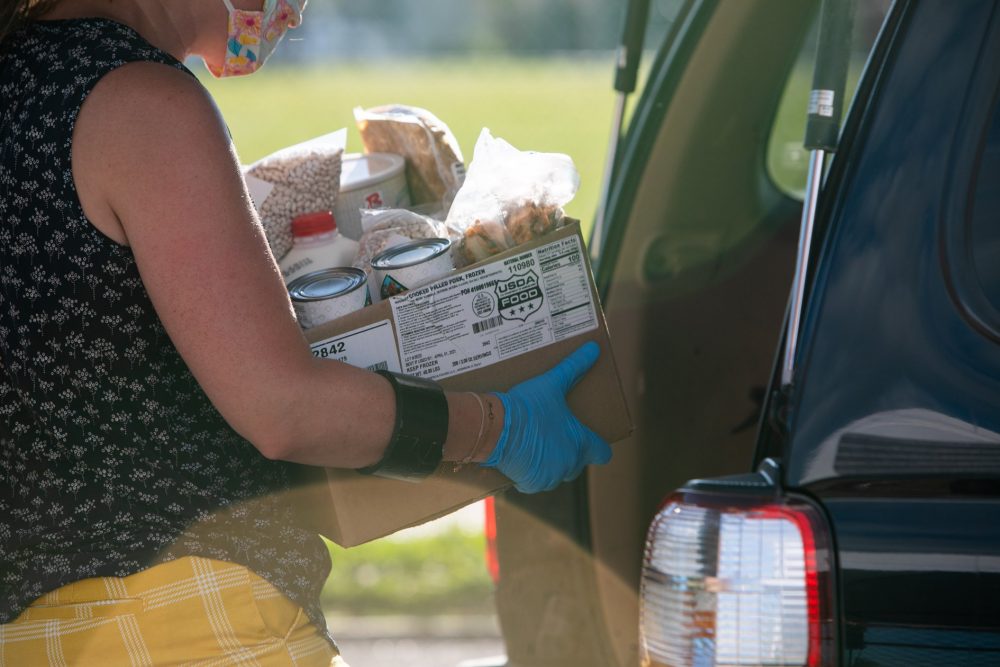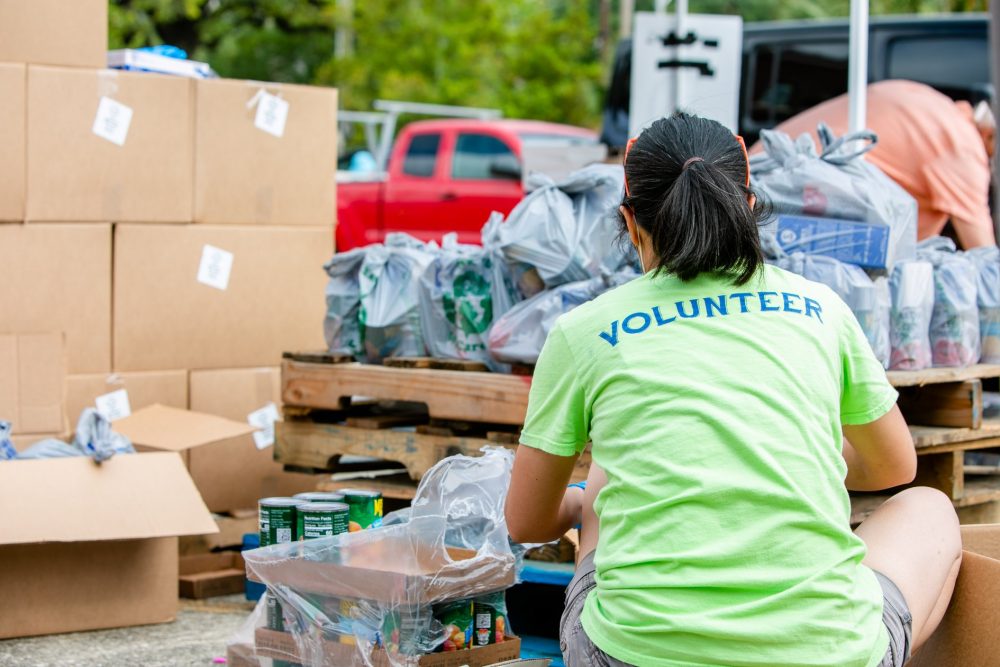Disaster Philanthropy Playbook

COVID-19 – Culture Aid
Culture Aid NOLA received a $90,000 grant from the Center for Disaster Philanthropy (CDP) to provide no-barrier, free food distribution and information dissemination to New Orleans residents most affected by COVID-19 and most at risk of economic collapse from widespread job loss and lack of public or private safety nets.
Executive Director Erica Chomsky-Adelson is a 12+ year disaster response veteran. When COVID-19 led to closures in New Orleans on March 13th, she was working as a program coordinator at Tulane University. She immediately knew that there was going to be a high need for food. She says, “I got on the phone with friends and said ‘What are we going to do? We know we’re going to go do something?’” The answer was “feed people.”
Building on her extensive network and relationships with nonprofits and other service providers, Chomsky-Adelson got to work. As restaurants began shutting down and cleaning out their kitchens, she and her friends took that food. She recalls, “We went to Liberty’s Kitchen [a nonprofit kitchen that trains at-risk youth] and cooked 500 meals. We were not prepared. I remember turning people away the first night and feeling very nauseous. That’s when we knew we couldn’t fail. The next week it was 750 meals.”
As connections grew, so did the volume. By the third week, they were serving 5,000 meals. The demand kept growing, so they transitioned to providing groceries instead of prepared meals, allowing people to prepare food tailored to their tastes and needs. As logistical operations expanded, Chomsky-Adelson formed Culture Aid NOLA, a coalition of several organizations including the New Orleans Musicians Clinic, Music and Culture Coalition of New Orleans, New Orleans Food Policy Advisory Committee, Second Harvest Food Bank, Lowernine.org and Trinity Loaves and Fishes.
Many of the Culture Aid volunteers were hospitality workers and culture bearers. This led to the operationalization of Culture Aid as a hospitable, no-barrier, stigma-free environment. Chomsky-Adelson explains, “A lot of times when you try to access any kind of resource, you have to provide ID, proof of income, copy of a lease, copy of a utility bill, but we know that’s not the best way to reach people.”
“People who are undocumented, people who don’t have those documents and particularly during coronavirus, people who are ashamed, don’t want to put themselves into the position of proving to a stranger that they have need.”
Culture Aid has two main modes to manage its massive food distribution program. From March 13 to Dec. 31, 2020 alone, Culture Aid NOLA served 95,000 people distributing 500,000 pounds of food. It partnered with community organizations and organizers at a very hyper-local level such as neighborhoods, community groups, Social Aid and Pleasure Clubs and Mardi Gras Krewes by providing grocery boxes they can deliver directly to their members.
“The one lesson we have not yet learned in disaster response is that there are existing and highly resilient support networks already in communities. We have a tendency to say ‘everything is broken right now’ after a disaster and we tend to view a community as a blank slate. But in marginalized communities, there are hundreds of support groups,” said Chomsky-Adelson. “We work with local community partners to enable them to support their own communities. For example, we work with a long-time community leader, super important to her community and leader of a well-known Social Aid and Pleasure Club. She is often overlooked because they don’t have the formal networks, formalized relationships, 501c3 status etc. We’re able to go in and say ‘you know your people, you know what they need, you know where they live, here is some food, go and take care of them.’”
The second method is weekly distributions in hard-hit neighborhoods. As cars arrive on site, they are greeted warmly by bilingual volunteers who say something like, “Hello, thank you for coming tonight. Are you here for your groceries? We have some lovely cabbages and carrots tonight. Can I interest you in a fresh mask?” During the food distribution, Culture Aid also pays local DJs and musicians to play. This employs musicians, brings joy to people in line and provides a soundtrack for the hard-working volunteers.

Chomsky-Adelson says that the atmosphere contributes to the comfort level of those picking up their groceries. “The only question we ask on site is ‘How many people are you trying to feed?’ There is no paperwork. We are setting the expectation that people are deserving of and welcome to the food. There is no stigma. There’s a lot of shame around the inability to feed your family. We try to show people hospitality, dignity, grace. In fact, we have a banned words list – ‘need, food bank, desperate’ etc.”
CDP’s grant provided significant capacity-building support for Culture Aid. Chomsky-Adelson was still working at Tulane and running Culture Aid (she left in October to focus on continuing to expand the organization), but the funding enabled the organization to hire a few part-time staff members to help manage activities. The timing of the grant coincided with the pending expiration of a crucial USDA waiver. She says, “We spent a significant portion of CDP grant on local food from local suppliers and managed to place a standing order with Sprout, a local farmers’ collective. The grant came at a make it or break it point for us. It kept the operation moving.”
She added, “Having the support of a trusted funder like CDP let us leverage that grant to attract other funders. It gave us a solid foundation to build a long-term commitment to the community and a promise that we wouldn’t leave people behind. The understanding from CDP of the importance of general operational support was crucial. It was overnight capacity building for us and our partners.”